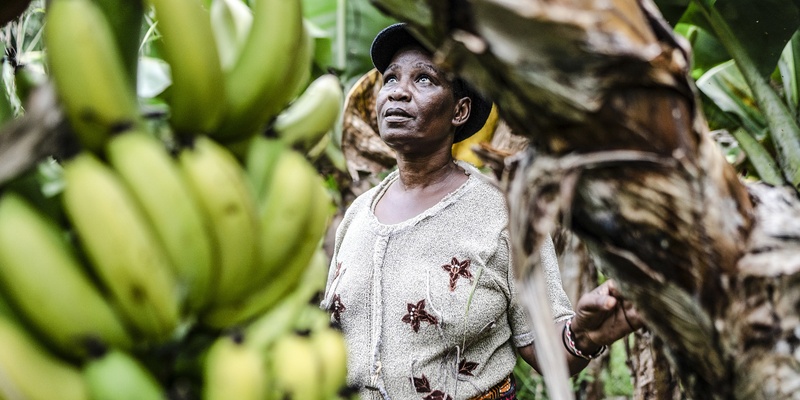The IPPC Secretariat completes the workshop series on Fusarium TR4
Posted on Tue, 17 May 2022, 09:10

Rome, 10 May 2022. The International Plant Protection Convention (IPPC) Secretariat held the third and last session of the virtual workshop series on Fusarium TR4. The session focused on the importance of inspection, identifying pathways and commodities of Fusarium TR4, and simulation exercises. Over 120 participants from around 100 countries in Africa, Asia, the Pacific, Latin America and the Near East and North Africa, attended the virtual workshop.
The scale of the threat Fusarium TR4 poses to the world banana industry is high. Bananas and plantains are produced in more than 135 countries and are a staple crop for food security and an essential source of income in many developing countries. Therefore, expansion of Fusarium TR4 threatens to create numerous social, economic, and political problems.
“I am confident and optimistic that the workshop series on Fusarium TR4 diagnostic, surveillance, inspection and simulation exercises will provide you with a clearer understanding of Fusarium TR4, and the mitigation measures that should be in place,” said Osama El-Lissy, IPPC Secretary, in his opening remarks.
“This training on Fusarium Tropical Race 4 diagnostic, surveillance, inspection and simulation exercises is very important to our region. The knowledge that will be acquired from the training will go a long way in the effective control of plant diseases in the region,” said Providence Mavubi, director of the Industry and Agriculture Program of the Common Market for Eastern and Southern Africa Secretariat.
The TR4 Global Network (TR4GN) was established by the World Banana Forum and FAO to create a dedicated platform and knowledge hub for exchange and collaboration on preventing the spread of Fusarium TR4 across the globe. Presentation on the initiatives led by TR4GN, was delivered by Victor Prada, Secretary of the World Banana Forum. These initiatives make it possible to raise awareness among key stakeholders involved in banana production globally, collaborate internationally, and take local actions to prevent Fusarium TR4 introduction, and early detection, management, containment, and eradication of Fusarium TR4.
Ecuador shared its experience with the webinar participants on successfully preventing Fusarium TR4 introduction in a region where the pathogen has already emerged in neighboring countries like Colombia and Peru. To save the banana industry from invasion of Fusarium TR4, Ecuador has established and strengthened measures to prevent emergence of pathogen, such as: the development of regulations, surveillance, and diagnosis; import of Musaceae propagation materials from authorized sites at the source, disinfection of vehicles, machinery, containers in ports, footwear in ports and airports, and inspection of passengers and their luggage. Monica Gallo, Plant Health General Coordinator at the Ecuadorian NPPO stated, “We protect the country from the most destructive pest of Musaceae, we are in alert."
Lastly, the webinar covered simulation exercises as integral part of an early warning and emergency response system. These exercises are beneficial in evaluating the decision-making process and validating emergency preparedness and response plans. “The effective response to the outbreak of a quarantine pest depends on the preparation of coordinated actions that, if executed appropriately, will minimize the possible impacts. Contingency plans are not theoretical exercises; they must be tested frequently to be evaluated, adjusted, and updated,” stated Nancy Villegas from the Organización Internacional Regional de Sanidad Agropecuaria (OIRSA).
The IPPC Secretariat, within the framework of the “FAO support to COMESA trade facilitation programme,” will conduct simulation exercises in two selected COMESA member states, to further strengthen capacities to address the threat posed by Fusarium TR4. Likewise, the IPPC Secretariat is developing the prevention, preparedness, and response guidelines for Fusarium TR4, which will be published in 2022.

